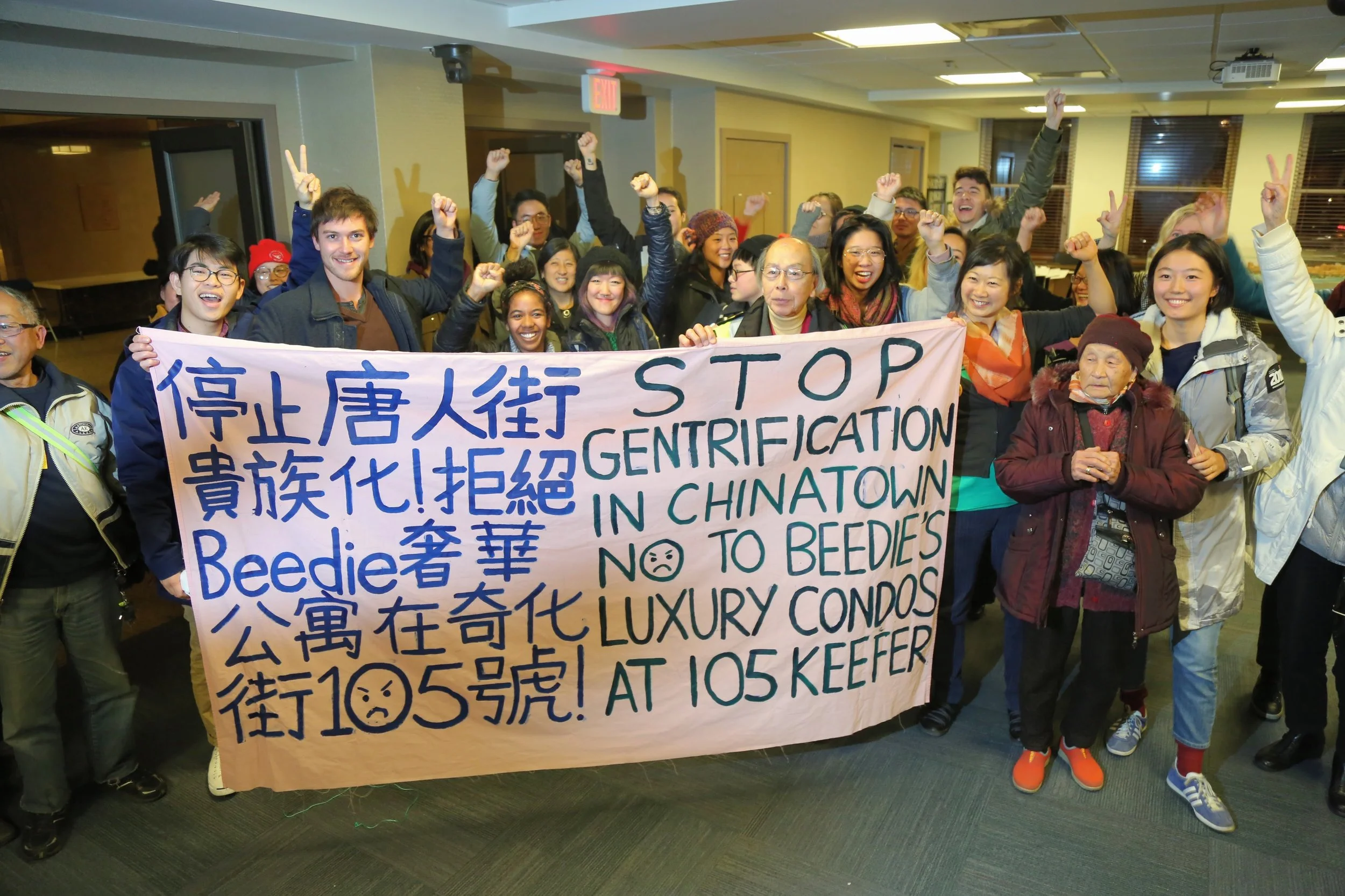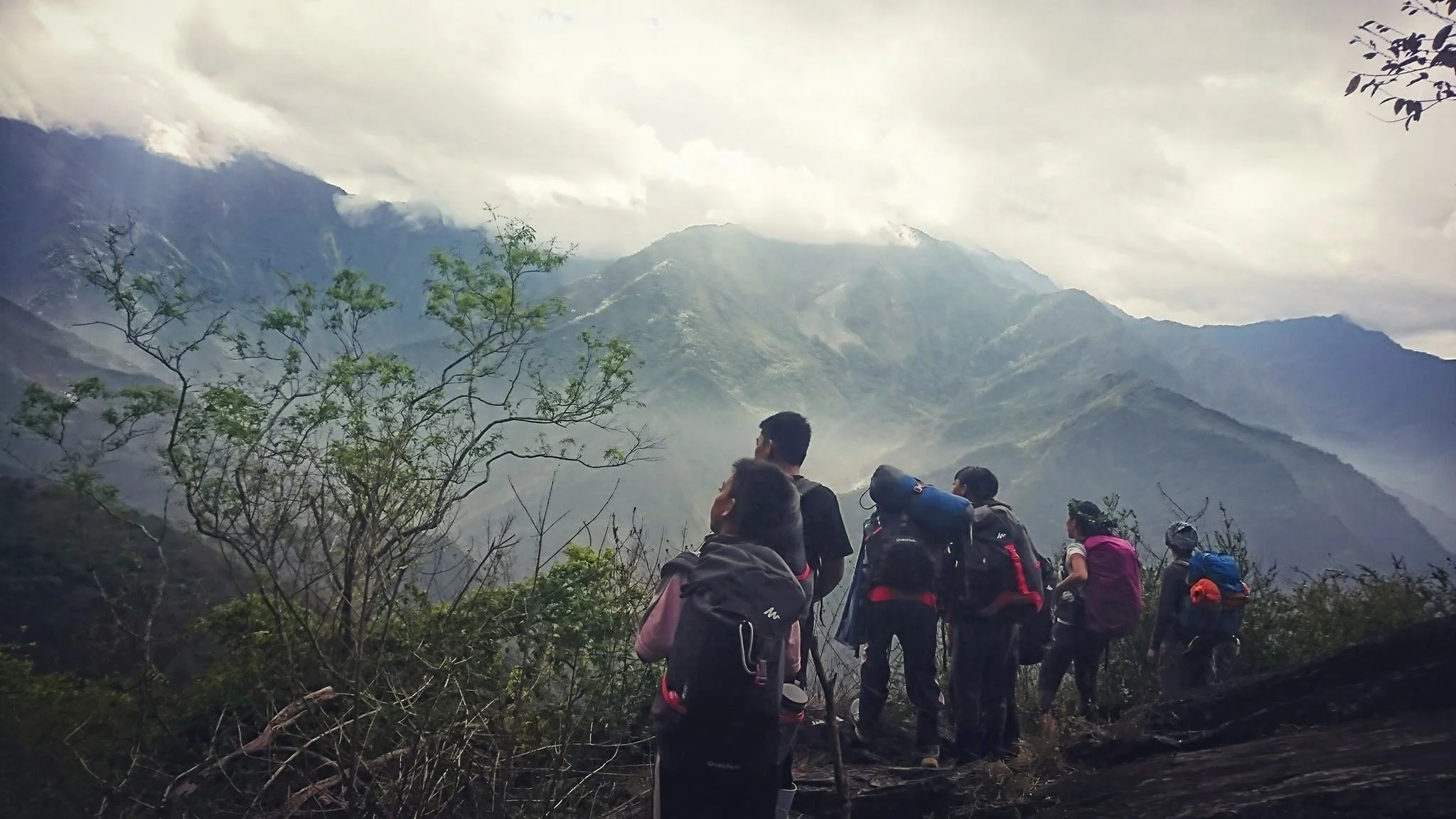-
Radical Pedagogy of Place: A Decolonial Feminist Narrative Exploration of Returning, Organizing, and Resisting
This dissertation, set in the struggle against settler colonial modes of control, examines Asian racialization, (im)migrant settlerhood, and place-making through a transnational perspective. I focus on my personal experience with migration and the specific place-based knowledge and practices of Taiwanese Indigenous and Asian migrant communities. Following a decolonial feminist methodology, I devise the act of “returning,” both in the metaphorical and physical sense, as a key method in exploring questions of place, identity, and resistance.
As such, in this work, I first situate my own lived experiences in and with multiple places through memory-based reflection as the method of returning. In this, I also offer an analysis, with the framework of border imperialism, of migration and mobility, arguing that migration is not about free choice to move but mobilized through global capitalism and colonialism through mechanisms such as racialization, border rules, and citizenship. Second, I give an account of my journey of physically returning to my birthplace, Taiwan. Through reconnecting with Taiwan and my family, I come to realize the settler colonial reality of Taiwan as a nation state and our family’s position as Han settlers. Therefore, I present a framing of Taiwan and its struggle over place and identity in the context of the complex layers of settler colonial capitalist structures created through Taiwan’s specific history. Specifically, I highlight the important place-based resistance of the Indigenous community Kucapungane in Rinari Township in Southern Taiwan. As a displaced community due to the colonial government’s disaster response measure, Kucapungane created a tourism program that reverses the consumeristic nature of tourism, teaching the settlers and visitors about their struggle, their land, and stories on their own terms. Lastly, I reflect on my involvement as a community organizer working with an intergenerational coalition of Asian seniors and youth fighting back gentrification and anti-Asian racism in Vancouver’s Chinatown, and how we learn to align our organizing with Indigenous struggle. We learn that to decolonize our resistance work, we need to reclaim our own humanity and cultural resources by establishing intergenerational relationships and knowledge exchange, finding joy and empowerment in such communal experiences.
Viewed as a suite of theoretical and empirical explorations, my experiences with and in these different places reveal that when we engage critically and intimately with place history, knowledge, and the collective imagination of what a just and flourishing future looks like, a pedagogy emerges. I call this a “radical pedagogy of place” which emphasizes the inseparable relationship between people and place. It reveals that the deeply place-based practices and knowledge hold the potential to transform the ways in which Asian communities build collectivity and solidarity around the world. To see pedagogy in this light shows the essentiality of education in our day-to-day political struggles and the political nature of our everyday lives. Pedagogy is not limited to an approach to teaching in the traditional schooling sense. Instead, we should recognize that pedagogy is present and a necessary component in the practice of liberation.
-
In my post-doctoral fellowship, I am a part of the research project entitled “Holding Space for frontline Indigenous leadership in community-driven responses to the housing and overdose crises in Vancouver’s Downtown Eastside” funded by Canadian Institute of Health Research (CIHR) and led by Dr. Jeff Masuda in the School of Public Health and Social Policies at University of Victoria, Dr. Daniela Aiello in the Department of Geography at Penn State, and Nisga’a Elder Hagunta’a/Rhonda Stephens of Uy’aam Gaak Cultural Society. In this project, I work with Elder Hagunta’a and her team to build a community-centered Indigenous public health response and help advance tenant organizing. This includes supporting cross-racial tenant organizing in Vancouver’s Downtown Eastside and Chinatown in combatting housing exploitation, racism, and colonial policing and neglect. In 2024, I have been developing an Organizing Langauge School with other Chinatown youth organizers. In the language school we offer Mandarin and Cantonese language classes for organizer who want to communicate better with Chinatown residents. We also have an interpretation collective that come together to practice and discuss what it means to interpret for organizing and building solidarity.
Learn more about Uya’am Gaak and Holding Space please visit: https://uyaamgaak.ca/
Any inquiry on Chinatown Organizing Language School, feel free to email me or email organize4chinatown@gmail.com
-
Please feel free to email me if you’d like access to any of the articles.
Book Chapter
• Ho, YCJ. & Lin, HN. (Dec 2023). Possibilities of a Radical Pedagogy of Place: Lessons from Kucapungane. In S. Pike & E. Rawling Smith’s (Eds.) Encountering Place in Education. Routledge.
• Ho, YCJ. (Dec 2023). Aligning Anti-racism Efforts with Decolonization: Reflection from Organizing in Vancouver’s Chinatown. In R. Datta’s (Ed.) Decolonization in Practice: Reflections from Communities. Canadian Scholars and Women’s Press.
• Ho, YCJ. & Tham, PT. (2021). Beyond Tropes: A Dialogue on Asian Women’s Experiences in the Outdoors. In Baker, M., N. Carr & E. Stewart’s (Eds.) Leisure Activities in the Outdoors: Learning, Developing and Challenging. Wallingford, UK: CAB International.
• Toomey, N., Ho, YCJ. & Del Vecchio, D. (2021). Reconciliation through Kits and Tests? Reconsidering Newcomer Responsibilities on Indigenous land. In R. Datta & M. Sysing’s (Eds.) Land, Responsibilities, and Reconciliation: Immigrant and Refugee Perspectives. Routledge/Taylor and Francis.
Journal Articles
• Blenkinsop, S. & Ho, YCJ. (2022). More Than Just Climate Change: The Search for Eco-socially Just Change Education in Canada. Encyclopedia of Educational Innovation.
• Ho, YCJ. & Chang, D. (2021). To Whom does this Place Belong?: Whiteness and Diversity in Place-based Environmental Education. Annals of Leisure Research, 25(5), 569–582.
• Ho, YCJ. (2020). Making Sense of Place: Place Anchors and Educational Potentials. Canadian Journal of Environmental Education, 23(3), 54-73.
• Massie, A. & Ho, YCJ. (2020) “Working Women Unite”: Exploring a Social feminist, Non-hierarchical Teachers Union. Labor Studies Journal, 45(1), 32-55.
• Ho, YCJ. & Block, S. (2017). School, Nature, and Educational Wounds: Parents’ Stories. Pathways (http://www.coeo.org/pathways-journal.html)
• Blenkinsop, S., Piersol, L., Derby, M. & Ho, YCJ. (2016). The Natural World as Colonized Other/s: Educational implications. Canadian Journal of Environmental Education, 21, 198 – 217.
• Ho, YCJ. (2015). Towards a Linking Activist Pedagogy: Teacher Activism for Social Ecological Justice. Ed Review. Fall 2015 (1).
Edited Volumes
• Gough, A., Ho, YCJ., Lloro-Bidart, T., Russell, C., Walters, S., & Whitehouse, H. (Forthcoming). Ecofeminism and Education: Repositioning Gender and Environment in Education. Special Issue. Gender and Education.
• Huang, M.T. & Ho, YCJ. (Eds.) (2017/2018) The Budding and Blooming of Outdoor Education in Diverse Global Contexts. Taiwan: National Academy for Educational Research. *Published in Mandarin (2017) & English (2018).



